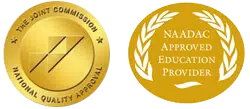Drug and alcohol use for adolescents can have even more far-reaching and irreversible health consequences than drug and alcohol abuse in adults, including developmental delays and permanent changes in the brain. For families concerned about the substance abuse of a youth, there are options, especially with early intervention. Baystate Recovery Center can help.
Why Is My Teen Using Drugs or Alcohol?
Adolescents enjoy pushing boundaries and experimenting, and developmentally, they have less impulse control than almost any other age group. This, plus the underdeveloped front lobe of the brain, which controls judgment and responsible decision making, means that teenagers are predisposed to risky behavior.
They may engage in substance use to fit in or because it makes them feel good. Other times, however,r teen drug and alcohol use may cover underlying trauma, abuse, or a struggle with a mental illness. Coming to the root of why an adolescent is drinking or using drugs is important in successful treatment.
What are the Effects of Drinking and Drug Use in Teens?
Substance abuse can lead to problems in school, like cutting class or not completing assignments. It can also affect performance in extracurricular activities – you may notice that your child isn’t interested in the activities they used to be. Substance abuse can also lead to problems with friends, especially if many of the teen’s friends aren’t using. Risky behaviors, such as unprotected sex, also increase, and thus a higher likelihood of contracting an STI or getting pregnant.
Beyond the social and behavioral problems, chronic drug and alcohol use can cause serious problems with brain development. An adolescent’s brain is still growing, and some of the neural pathways in the brain can be permanently re-routed due to drinking or drugs. Developmentally, moderate to severe substance abuse can cause the child to be emotionally “stuck” at the age that they started using heavily.
What are the Signs of Substance Abuse?
It’s important to note signs that your teen may be drinking or using drugs. Some common indications are:
- Red, watery eyes
- Complaints of being overly tired or sleeping more than usual;
- Withdrawl from favorite activities
- Changing a friend group
- Smelling of smoke
- Changes in behavior, such as extreme highs or lows
How Can I Help an Adolescent Using Alcohol or Drugs?
Many parents feel that a strong intervention is the key to making a teen stop using, but often, a forceful, angry approach will only cause them to rebel further. Having a conversation from a place of concern can help. The earlier you’re able to get an adolescent into treatment, the better. If they have only experimented with alcohol or drugs a few times, an honest conversation about the long-term dangers of using may be enough.
However, if your teen has substance use disorder (SUD), then they need help from a therapist trained to address SUD in teens. They may need medical attention, too, to evaluate the damage done by the drugs or inpatient treatment to help them reduce their physical dependence on the drugs. Treatment centers that have family support and counseling are especially beneficial so that the adolescent has a strong support system from their family.
Contact Baystate Recovery Centers Today
Are you concerned about your teen’s drug or alcohol use? We can help. We offer holistic addiction treatment programs focused on adolescents’ needs and family support and counseling. Call today for a confidential assessment.
Baystate Recovery Center, a clinically Infused 12-Step Treatment Center for Drug and Alcohol Addiction, was founded by two partners in addiction treatment services, John Checchi and Michael Wilson.



